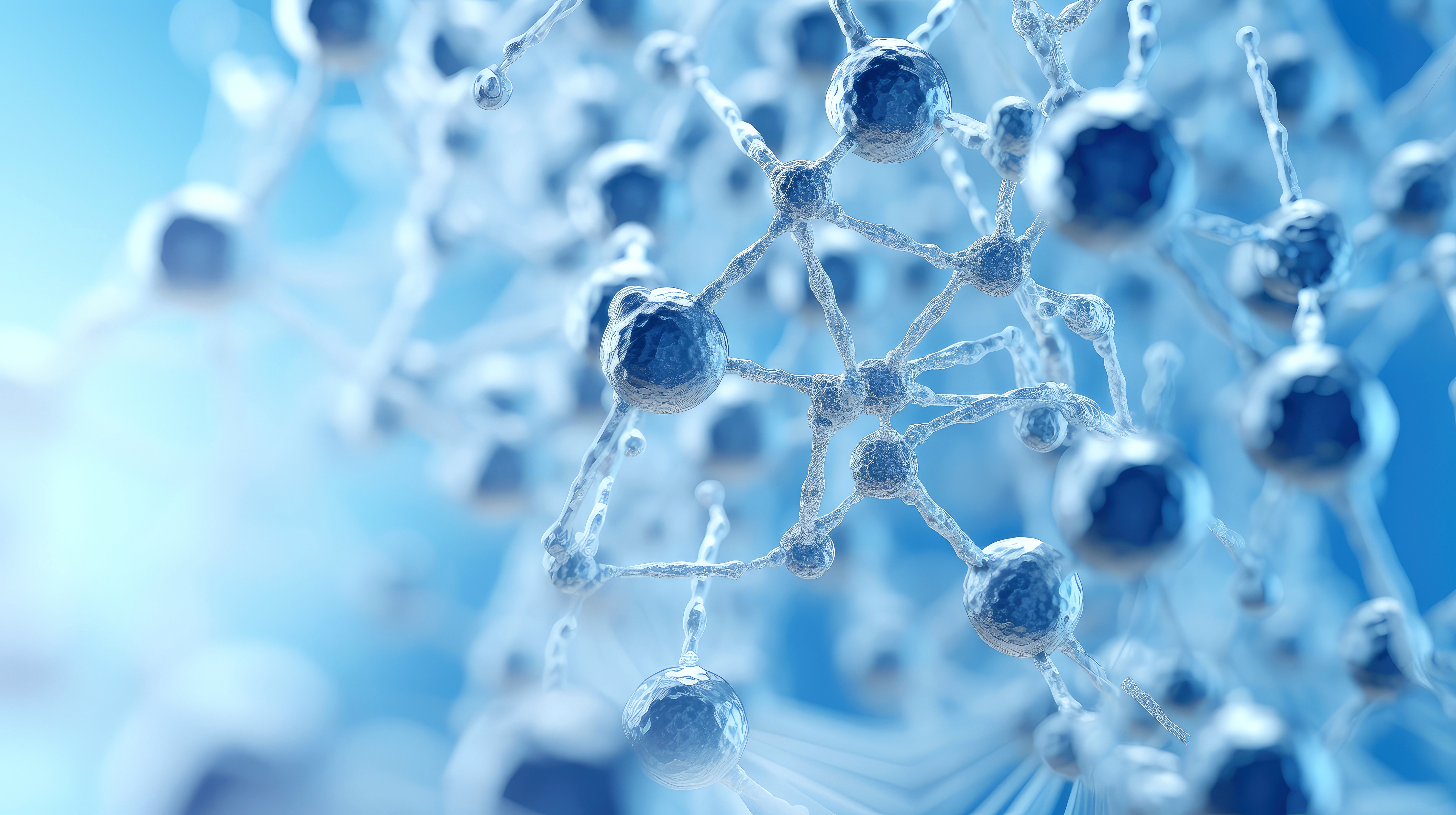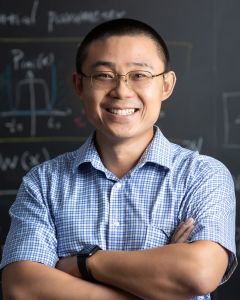UNC Chemist Receives Alfred P. Sloan Foundation’s Prestigious Matter-to-Life Award

Dr. Zhiyue Lu's work seeks to establish fundamental theoretical limits and design principles governing the emergence of life-like behaviors in complex biochemical networks.

April 2, 2025 | By Dave DeFusco
Dr. Zhiyue Lu, an assistant professor in the UNC Department of Chemistry, has received a prestigious Matter-to-Life Theory Investigator Award from the Alfred P. Sloan Foundation. This highly competitive three-year, $300,000 grant supports groundbreaking theoretical research into how life-like behaviors emerge from inanimate matter.
“Recognized as one of the most creative young researchers working at the interface of statistical physics and biophysics, Dr. Lu has a strong record of foundational contributions,” said Dr. James Cahoon, chair of the Department of Chemistry. “His work is poised to inspire both fundamental understanding and novel applications in biophysics.”
Dr. Lu’s project, “Emergent Complexity from Non-Equilibrium Networks: Designing Life-Like Responsiveness and Energy Transduction,” addresses one of science’s most profound questions: What makes matter come alive? His research will develop predictive theories on how complex biochemical networks can adapt, compute and efficiently manage energy—hallmarks of living systems.
Using tools from statistical physics, stochastic thermodynamics and network theory, the Lu Lab will explore how artificial systems might replicate life-like features, such as robust circadian rhythms, energy harvesting from fluctuating environments and intelligent responses to stimuli. The research has the potential to guide the design of synthetic materials and nanoscale systems that behave with life-like sophistication.
The Sloan Foundation’s Matter-to-Life program supports transformative theoretical efforts that unify insights across biology, chemistry and physics into a coherent framework for life-like behavior. Dr. Lu’s research will focus on establishing a theoretical framework for the emergence of information processing and energy transduction capabilities in far-from-equilibrium biochemical networks.
“Dr. Lu’s research exemplifies the foundation’s commitment to advancing bold, theoretical inquiries that bridge disciplines to address fundamental scientific questions,” said Dr. Ernie Glover, program director at the Alfred P. Sloan Foundation. “His work on emergent complexity in biochemical networks aligns perfectly with our Matter-to-Life program’s mission to uncover the principles that drive life-like behaviors from non-living matter.”
His project is structured around three primary aims:
- Develop theoretical models and simulations to understand how complex network properties influence life-like responsiveness. Through Markov models and graph-theoretical approaches, the research will uncover key design principles governing emergent behaviors in biological and synthetic systems.
- Investigate energy distribution within complex biochemical networks to determine the network architectures and thermodynamic principles that amplify weak-driving forces or robustly distribute high-amplitude energy inputs.
- Explore how biomimetic networks can extract and utilize energy from dynamic, non-equilibrium environments. Using information geometry and stochastic thermodynamics, the research will define design rules for synthetic systems that power life-like functions by harnessing environmental energy fluctuations.
“My work seeks to establish fundamental theoretical limits and design principles governing the emergence of life-like behaviors in complex biochemical networks,” said Dr. Lu. “These insights will provide a deeper understanding of how life-like responsiveness and efficient energy management arise from the collective behavior of individual molecular components.”

